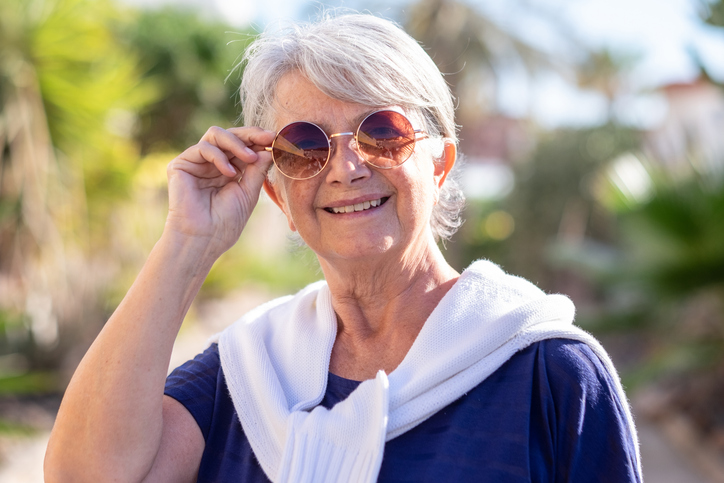Dry Eye and Hormones
Noticing more dryness in your eyes? It could be linked to your hormones.

If you’re bothered by dry eye, you don’t usually think it might be related to your hormones but in fact it could be.
Hormones are chemical messengers that travel all over the body, so it’s no surprise they can also affect your eyes.
The chief ones are thyroid hormone, insulin, and sex hormones like oestrogen. When you get treatment for your hormone problem, you’ll get some relief from dry eye too.
The female factor
If you’re a woman, it’s more likely you’ll get dry eye, especially as you get older. That’s because your levels of oestrogen and other sex hormones change so much over your lifetime.
For instance, you have a greater chance of getting dry eye when you go through menopause. It’s a time of life when hormone levels fluctuate up and down.
If you’re pregnant, you’re also more likely to get dry eye because of hormone changes. The same goes for women who take birth control pills and also wear contact lenses.
Experts aren’t sure exactly how changing hormones affect dry eye. Some studies show that hormone replacement therapy (HRT) for menopause symptoms makes dry eye worse, while other studies show it makes it better.
It does seem that women who take only oestrogen are more likely to get dry eye, while those who take a combination of oestrogen and progesterone are less likely to get it.
Dry eye may also be made better or worse by androgens, “male” hormones like testosterone, which both men and women make.
For instance, women with polycystic ovary syndrome (PCOS) often have dry eye. The disorder causes cysts and problems with ovulation because of too much androgens.
The thyroid factor
Another hormone that can cause problems is in your thyroid gland in the neck which can also cause dry eye.
Menopause sees a number of women experiencing thyroid issues and are taking medication to help it. Progesterone supports thyroid function so having good levels is important.
The changes can be due to a thyroid-related autoimmune disease. The immune system, which is your body’s defence against germs, mistakenly thinks your thyroid gland is an enemy and attacks it.
For instance, Graves’ disease is an autoimmune disorder that’s linked in its early stages with high thyroid levels, but over time or after treatment may have low thyroid levels.
People who have it may have trouble closing their eyelids, don’t blink often enough, and also can’t keep their tear levels up. The eyes may actually bulge forward. All of these problems can lead to dry eye.
Hashimoto’s disease is another autoimmune disorder that causes low thyroid levels and dry eye.
Diabetes and dry eye
If you have diabetes, either type 1 or type 2, there’s a good chance you’ll also get dry eye. The reason may have to do with the amount of insulin you have.
Low insulin levels make it harder for your lacrimal gland to make tears and taking insulin may reverse some of these problems.
Helpful information
Hormone balance is essential throughout life, but if you feel you are suffering from dry eye and your eye drops aren’t working then it could be you need some extra help.
As both oestrogen and progesterone can help then a combination cream such as 20 t0 to one with both hormones could be a solution.
not sure which hormone you may need? This article will help.
https://anna.blog.wellsprings-health.com/which-hormone-or-hormones-might-you-need/


















